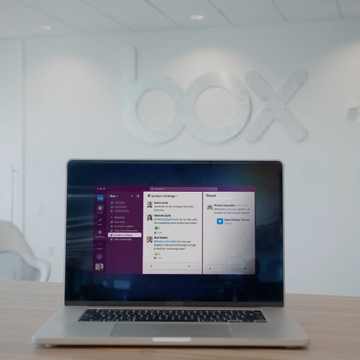In August 2021, the U.S. withdrew the last of its troops from Afghanistan, ending a nearly 20-year presence in the country. The final days of the withdrawal were chaotic, with the U.S. airlifting thousands of its troops and citizens out of Kabul, along with Afghan allies who were anxious to leave the country before an all-but-certain takeover by the Taliban.
During those tumultuous days, and over the months since, Afghan citizens took extraordinary risks to find safe passage out of the country. Some joined the U.S. airlift; others bravely relocated on their own, not knowing when—or if—they might return.
Like so many people around the world, Ian Porter tensely watched the situation unfolding in Afghanistan from afar. But as a U.S. military veteran himself who had served in Afghanistan alongside local interpreters who were now at risk, Porter felt compelled to act. So, he joined Team America Relief (TAR), an ad hoc network of civilian and veteran volunteers with a shared mission: “To provide timely and relevant information and coordinate resources to responsibly evacuate or transition people at risk out of crisis.”
“This started with a bunch of military veterans, frontline civilians and their friends, basically people just doing what they could to make it easier for Afghans trying to escape,” says Porter, now the organization’s tech lead.
In its early days, the group relied primarily on SMS to communicate, sharing critical information about Taliban checkpoints, escape routes and evacuation flights. But as more people joined the effort, those communication threads quickly grew unwieldy.
Anh-Thu Nguyen, TAR’s advocacy and legal team lead, recalls, “We relied on group chats to communicate and align with each other, but it was starting to get out of hand, and information necessary to support individuals was at risk of getting lost. Time was of the essence, and we needed a more streamlined way to share time-sensitive information that could be the difference between life or death in some instances.”
When someone on the team suggested launching a Slack workspace to improve collaboration, Porter agreed. Having used Slack in his day job as a product manager, Porter knew the collaboration platform would be an effective productivity platform for the TAR team. As the organization’s volunteer workspace admin, he envisioned a digital response center that would bring teams, tools and partners together so they could swiftly triage cases and source solutions. That vision quickly became a reality.
“Time was of the essence, and we needed a more streamlined way to share time-sensitive information that could be the difference between life or death in some instances.”
Speeding up and scaling the emergency response
Within 24 hours of its first formal meeting, TAR had established a modern emergency response center within Slack. The team created dedicated Slack channels for specific tasks and processes, like:
- #inbox-case-management to quickly triage and escalate incoming relocation cases
- #legal-resources-questions to share information about immigration laws and visa issues
- #resettlement to provide continuing assistance to individuals who had been successfully relocated
TAR quickly scaled its operations, from initially supporting just 14 families to hundreds, and then thousands, of Afghans. The organization now maintains a database of more than 70,000 individuals, each one seeking relief assistance. TAR’s team grew too, from 12 people collaborating via text messages and Excel spreadsheets to more than 200 volunteers during peak activity in August. To date, TAR has engaged more than 400 volunteers in its Slack workspace.
In the months since the August airlift ended, TAR has continued using Slack to process pending relocations. They also collaborate in the #resettlement channel to track and provide ongoing support to those Afghans who were able to relocate outside the country.
Unlocking institutional knowledge
“None of us knew what we were doing when this started,” says Abram Rodd, one of TAR’s case management team leaders, about the early days of the Afghan airlift. “It was a lot of experiential learning where we were just communicating constantly. And primarily that was in Slack.”
TAR’s volunteers turned to Slack channels to share critical information and institutional knowledge, giving everyone on the team on-demand access to invaluable expertise and data.

“We quickly went from 12 people working via SMS, email and Excel up to a high point of 200 people collaborating simultaneously in Slack, which gave us the ability to ratchet up and down based on volunteer needs.”
Centralizing mission-critical information
Along the way, Slack became a vital knowledge repository for TAR. Members could use Slack’s AI-powered, organization-wide search to scour information about wide-ranging topics like family reunification visas and obscure government acronyms, with critical resources pinned to channels for easy access.
That’s had a direct impact on TAR’s ability to fulfill its mission, says Sarah Ullrich, TAR’s data team lead. According to Ullrich, TAR has a high manifest rate (getting people onto relocation flights) of #AfghanEvac, a coalition of Afghanistan-focused organizations of which TAR is a member.
“A huge piece of that is because we’re known to have really high-quality data,” Ullrich says. “We vet people, we verify documents, we make sure documents are complete. And we can do that because everyone can access the same information, in real time, in Slack.”

“Slack is our virtual operations center. We had a database that we used with other tools, and we had our email systems, but we used Slack to bring all that together, allowing us to triage cases faster.”
Fast-tracking training and onboarding
Having so much data and documentation in one place has also been particularly helpful for new team members, Ullrich says.
“New volunteers are coming into this really complicated matrix of information, and nothing is straightforward. Slack has been critically important since day one as our central communication hub. I truly do not believe that we could have been as effective without it.”
TAR leverages Slack features like huddles, easy-to-use, audio-only calls, to hold office hours for new volunteers, and a “greeter” bot welcomes new members and facilitates introductions. The result has been a smoother, faster overall onboarding experience.
Nurturing culture and well-being
Given the stressful nature of TAR’s mission, keeping one another motivated and connected has been essential.
“We’re involved in very serious work, but you don’t have to take yourself seriously to do it,” Rodd says. “In Slack, we have certain channels that are just places you can go to let off steam or connect with people. It’s also become a place where we can share our wins and build our culture as a team.”
Another challenge: helping members of the decentralized team get acquainted. “Very few people had ever met each other,” Rodd says of the TAR team. To help foster connections among these virtual strangers, they’ve used huddles to tap each other for impromptu chats, and emoji reactions to show support or celebrate successful relocations.

“We vet people, we verify documents, we make sure documents are complete. And we can do that because everyone can access the same information, in real time, in Slack.”
Collaborating securely from anywhere
The distributed TAR team spans seven time zones, and deals with highly sensitive topics like the status of visa applications or the locations of humanitarian corridors. So not only does everyone need to be able to share information easily, but their communication must be reliably secure. With Slack, TAR’s staff can stay connected with one another 24/7, and collaborate with the confidence that Slack meets industry and international security standards.
Powering a mobile, multinational operation
A global effort means that some volunteers are going offline just as others are starting their day. And many TAR team members have day jobs, further limiting their availability. So having a single productivity platform where everyone can collaborate asynchronously has been crucial.
With Slack, anyone on the TAR team can dive into channels and participate in ongoing conversations, regardless of where or when they might be working. TAR’s volunteers have found the Slack mobile app especially useful in resolving issues at all hours of the day.
“A lot of things we were doing, especially in August, were very time sensitive,” Rodd says. “I spent a lot of time walking down the street, answering questions or connecting with people on Slack’s mobile app. You just really couldn’t wait because someone’s life might depend on it.”
Strengthening cross-sector alliances
Much of TAR’s work requires coordinating with other organizations and government agencies. For example, TAR team members share Slack Connect channels with adjacent volunteer organizations to rapidly coordinate on situational information, like identifying which airport gates have been least dangerous for those trying to leave the country.
Driving efficiency in day-to-day operations
TAR’s daily operations have grown more streamlined and efficient as the organization has matured. When TAR needs to quickly give a new volunteer access to its database tool, Airtable, for example, someone simply types “permissions” in a Slack message and sends it to Slack’s default helper, Slackbot, to kickstart the provisioning process.
Or, when a technical issue arises, the team launches a huddle to talk through the situation, sharing their screens if needed to resolve the problem. Slack clips, short audio and video recordings, have proved useful for providing updates asynchronously—particularly for a team that’s spread across so many time zones.
“At one point we were operating with volunteers across seven time zones. And a lot of people still had day jobs. But we were all able to communicate effectively through Slack.”
To date, Team America Relief has helped more than 1,000 people relocate from Afghanistan. And although its busiest days may be over, the team, motivated by a steadfast desire to help, is still actively monitoring the situation and supporting Afghans seeking to relocate.
“Our core volunteers just keep showing up day after day,” Ullrich says. “For me personally, seeing these individuals who have just given so much allows me to continue believing that humanity might be OK. It’s everything.”
If you’d like to support Team America Relief in its continuing efforts to assist Afghans trying to relocate, you can make a donation here. And to help Afghans who are now starting new lives in the U.S., visit Hearts & Homes for Refugees, Women for Afghan Women, and Welcome.US.

















